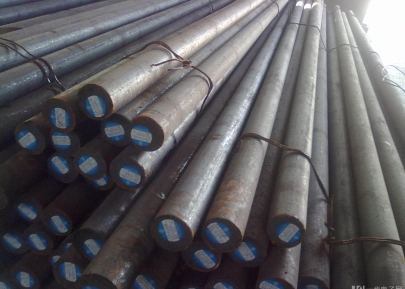Unlocking the Secrets of Mould Bases: Why Tool Steel Plates Are Essential for Precision Engineering
In the realm of precision engineering, mould bases play a critical role in defining the quality and efficiency of the manufacturing process. The quality of the joins, the design of the mould, and the material selection are all pivotal elements. Among these factors, the choice of tool steel plates as the underlying material stands out due to its unique properties. This article delves into the importance of tool steel plates in the realm of mould bases and how they contribute to greater efficiency and product quality.
The Role of Mould Bases in Precision Engineering
Mould bases are the foundational structure of a moulding system, responsible for holding everything together, including the core and cavity. They serve as a critical interface that affects the overall performance of the mould. Properly designed mould bases ensure stability, durability, and efficiency during the production cycle. Within this framework, the use of high-quality materials like tool steel plates becomes essential.
Why Tool Steel Plates are a Top Choice
So, what makes tool steel plates so indispensable when it comes to mould bases?
- High Hardness: Tool steel is known for its exceptional hardness, making it ideal for heavy-duty usage.",
- Wear Resistance: The wear resistance properties of tool steel ensure that moulds last longer with minimal maintenance.",
- Heat Resistance: Tool steel can withstand higher temperatures, making it suitable for applications that involve heat.",
- Dimensional Stability: When making precise parts, dimensional stability becomes critical, and tool steels excel in this aspect.
Understanding Tool Steel Types Used in Mould Bases
Tool steels come in various grades and types, each offering distinct benefits that may align better with specific needs. Here are some of the common types:
| Type | Properties | Common Uses |
|---|---|---|
| O1 Steel | Oil-hardening steel with good wear resistance and edge retention. | General tooling applications, mould bases. |
| D2 Steel | Air-hardening, offers high wear resistance. | Heavy-duty applications requiring durability. |
| A2 Steel | Air-hardening, good toughness and excellent dimensional stability. | Cold work tooling. |
Where to Find Quality Steel Plates for Sale
If you’re in the market for steel plates for sale, look out for the following factors:
- Reputable Suppliers: Always source from established suppliers with good customer reviews.
- Material Certifications: Ensure that the plates come with material certification, confirming composition and hardness.
- Customization Options: A supplier should offer cutting and machining services to fit your specific requirements.
How to Silver Plate Copper at Home - An Intriguing Alternative
While we discuss tool steel, it's worth noting some fascinating processes like how to silver plate copper at home. Although not directly related to mould bases, the techniques can be interesting for DIY enthusiasts. Here’s a quick guide:
- Gather your supplies: copper item, silver nitrate solution, heat source, and a non-reactive container.
- Clean the copper thoroughly to ensure good adhesion.
- Heat the copper item gently to help the silver adhere better.
- Dip the item into the silver nitrate solution and watch as silver starts to build up over the copper.
Key Takeaways
- Tool steel plates are crucial for achieving precision in mould bases.
- They come in various types, each with specific properties suitable for different applications.
- Finding quality steel plates for sale requires diligence and knowledge about supplier reliability.
- Exploring DIY techniques like silver plating can be an interesting side project.
FAQ
What is a mould base?
A mould base serves as a framework that holds the components of a mould together, ensuring stability and durability during manufacturing.
Why is tool steel preferred for mould bases?
Due to its high hardness, wear resistance, heat resistance, and dimensional stability, tool steel is ideal for mould bases.
How can I choose the right steel plate?
Always opt for reputable suppliers, check for material certifications, and consider customization options to fit specific needs.
Conclusion
In conclusion, mould bases made from high-quality tool steel plates offer unrivaled advantages in precision engineering applications. Understanding the importance of these materials can lead to significant improvements in production quality and efficiency. As we continue progressing in manufacturing technology, recognizing the fundamental components, such as mould bases, will play a critical role in future innovations.



